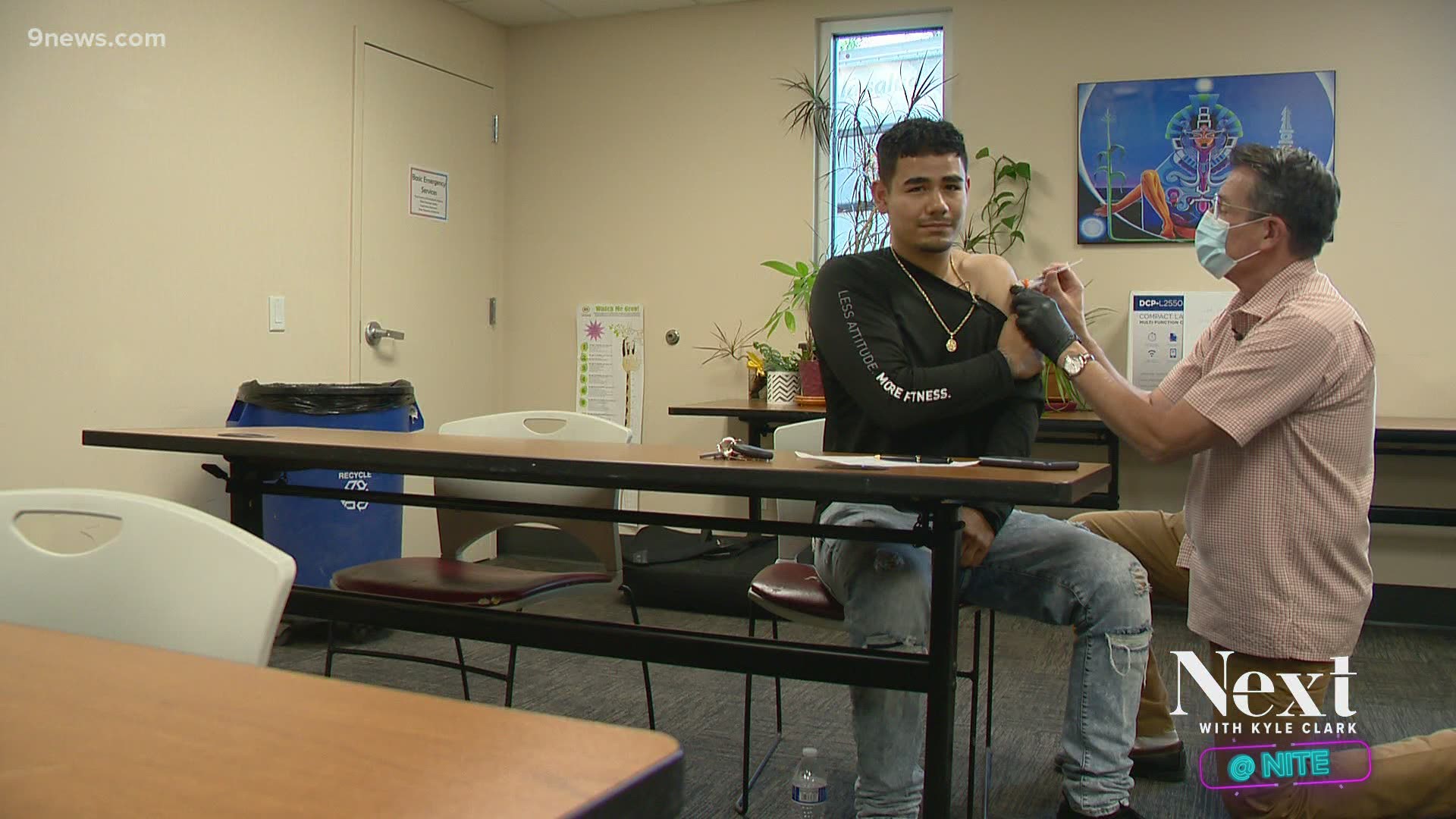DENVER — A community hardest hit by the pandemic in COVID-19 cases, hospitalizations, and deaths continues to have disproportionate vaccination rates. Denver County has seen a notable increase over time in cases of people who identify as Hispanic or Latino. The latest data shows only 36% of eligible Hispanics and Latinos in Denver are fully vaccinated. They make up only 10% of all vaccinations for the entire state of Colorado, according to data from the Colorado Department of Public Health and Environment (CDPHE).
As Delta Variant cases increase, doctors worry a community already hard hit by the pandemic will be even harder hit by the more contagious strain spreading across communities. "Sadly yes," said Dr. Ricardo Gonzalez Fisher, the coordinator for Ventanilla de Salud with Servicios de la Raza. "Even though the vaccine is available, we see pockets of people who don’t have access to the vaccine." Dr. Gonzalez Fisher said the biggest barriers facing these communities continue to be access to accurate information, and getting time off of work to get the vaccine and recover from their side effects. Without an increase in vaccinations among Hispanics and Latinos, Dr. Gonzalez Fisher is concerned the Delta variant will affect this community at higher rates than others.
Beginning Wednesday, Servicios de la Raza began offering on site COVID-19 vaccines after normal business hours to accommodate those who have trouble taking time off work. Appointments are available Monday-Wednesday from 4 P.M. - 8 P.M. Only 10 people were vaccinated at the site Wednesday evening. Dr. Gonzalez Fisher said when the organizations first began offering vaccines at other locations, they would oftentimes have to turn people away after running out of vaccine. Now, supply isn't an issue, but demand has decreased dramatically. "I agree with people who were waiting to see what was happening, I think we have millions of people vaccinated around the world," he said. "but now we know that those who are getting in intensive care and those who are dying, 99 percent or 97 percent are people who did not get the vaccine, so now there are data that you can compare."
During the clinic Wednesday, Dr. Gonzalez Fisher asked one parent why she had not received a vaccine yet. She said she didn't believe in vaccines, but decided to get her shot to protect her kids.
21-year-old Sergio Mares and his 12-year-old brother Ivan Hernandez were two of the patients who received their vaccine at Servicios de la Raza on Wednesday. Mares said he would have gotten his shot sooner, but working two jobs made scheduling an appointment difficult. "I‘d really just like to be part of the solution and not the problem," said Mares. "I don’t want to be the reason why my family gets sick or anything like that." Hernandez got his vaccine in time to safely return to in person learning this fall as a 7th grader.
Dr. Gonzalez Fisher said they have vaccinated more than 8,000 people through Servicios de la Raza alone and plan to make trips to other parts of the state in the coming weeks.

